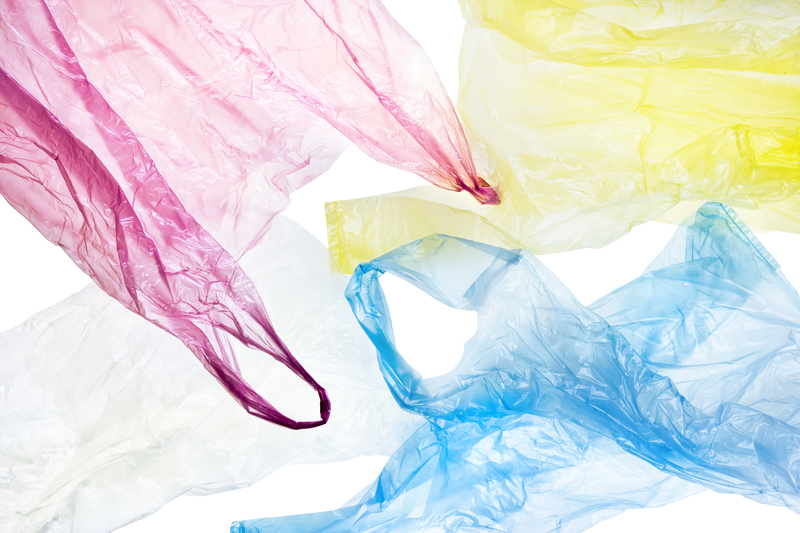Responsible Recycling Techniques for Outdated Pots and Pans
Have you ever wondered what to do with your old, worn-out pots and pans cluttering up your kitchen cabinets? Throwing them in the trash may seem convenient, but it's far from environmentally responsible. With landfills overflowing and resource conservation more critical than ever, responsibly recycling outdated cookware is essential. This comprehensive guide reveals everything you need to know about sustainable, eco-friendly disposal and reuse of your old pots, pans, and cookware.

Why Responsible Recycling of Pots and Pans Matters
The process of manufacturing cookware, especially metal pots and pans, consumes significant raw materials and energy. When these items end up in the landfill, valuable metals and non-renewable resources are wasted. Improper disposal of cookware can also leach harmful materials, such as nonstick coatings and metals, into soil and water.
- Metal mining and smelting contributes to environmental pollution.
- Aluminum, copper, and stainless steel are recyclable materials.
- Eco-friendly disposal conserves resources and reduces greenhouse gases.
- Responsible recycling prevents hazardous chemicals from entering the ecosystem.
Outdated cookware recycling is about more than decluttering--it's about protecting the planet for future generations.
What Types of Cookware Can Be Recycled?
Before heading out to recycle your old pots and pans, it's important to know which materials are recyclable. Most metal cookware can be recycled, but certain coatings and additional materials require special attention.
Common Recyclable Materials in Cookware:
- Aluminum (lightweight, often used in inexpensive pans and baking sheets)
- Stainless steel (durable, rust-resistant, often found in high quality cookware)
- Copper (found in premium cookware)
- Cast iron (heavy, thick, long-lasting)
Be cautious of nonstick coatings such as Teflon, enameled surfaces, or plastic handles, which may complicate recycling. Some facilities accept these, but others require them to be removed first. Glass lids, ceramic, or clay cookware generally need special handling or donation.
Top Responsible Recycling Techniques for Outdated Pots and Pans
There's more than one way to ensure your old cookware stays out of landfills. Here are the most effective and environmentally friendly recycling and disposal techniques:
1. Utilize Local Scrap Metal Recyclers
Metal scrap yards and recyclers are the best option for most outdated cookware. These facilities accept a wide range of metal products, including aluminum, stainless steel, copper, and cast iron cookware.
- Prepare cookware by removing non-metal parts, such as plastic handles, rubber grips, and glass lids.
- Check with your local recycling center to find out their requirements for drop-off.
- Group similar metals together for easier sorting and processing.
- Label or inform staff if there is a nonstick coating or unusual material present.
Scrap metal recyclers melt down the metal, which is then reused to manufacture new products. This technique is highly effective, ensuring nearly all materials are repurposed.
2. Curbside Recycling Programs
Some municipalities' curbside recycling services now accept metal pots and pans. However, regulations and accepted materials vary widely by location.
- Confirm with your city's waste management department whether they accept household cookware.
- Follow guidelines for size limitations, material restrictions, and preparation steps (such as removing plastic parts).
- Do not place non-recyclable cookware (Teflon, ceramic, glass) in the curbside bin unless instructed.
Using curbside recycling where available is convenient and eco-responsible, but double-check local regulations before proceeding.
3. Upcycling and Creative Reuse
Give the cookware new life by upcycling it into art, garden decorations, or household tools. Rusty frying pans, for example, can become whimsical wall clocks, plant pots, or bird feeders.
- Transform old pots into quirky planters for herbs or flowers.
- Paint pans and hang them as decorative wall art.
- Convert large pans into storage containers or organizers.
- Use cast iron as sturdy doorstops or paperweights.
- Create musical instruments with children using metal lids.
Upcycling reduces waste and encourages creativity while keeping materials out of the landfill.
4. Donation and Reuse Charities
Another eco-friendly method for dealing with outdated but still usable cookware is to donate it. Second-hand stores, community centers, shelters, or creative reuse centers may gladly accept old pots and pans.
- Call local charities or thrift shops to confirm they accept cookware.
- Ensure items are clean and still functional--minor chips or wear are often acceptable for donation.
- Some organizations accept even damaged or nonstick cookware for art projects or repurposing.
Donating extends the life of your cookware, helps those in need, and reduces overall waste.
5. Manufacturer Take-Back and Recycling Programs
Many cookware brands and manufacturers now offer take-back or recycling services. These programs are specifically designed to ensure proper and safe recycling of retired cookware, particularly those with tricky components like nonstick coatings.
- Visit the manufacturer's website and look for a "Product Recycling" or "Sustainability" section.
- Brands such as Calphalon, GreenPan, and others offer return programs or recycling drop-off locations.
- Some programs include pre-paid shipping labels or incentives for returning used items.
This technique guarantees responsible handling of old pots and pans, often with a focus on environmental responsibility and corporate sustainability.
Special Considerations for Non-Recyclable Pots and Pans
Though most cookware is highly recyclable, some materials and coatings present challenges. Understanding what cannot go into standard recycling is crucial for responsible disposal.
Nonstick (Teflon) and Ceramic-Coated Cookware
- Most standard recycling facilities do not accept nonstick coatings due to complex chemical makeup.
- Remove nonstick layers if possible; otherwise, seek out specialized recycling programs or manufacturer take-back schemes.
- Do not incinerate or grind down Teflon-coated pans at home due to toxic fumes.
Glass Lids and Handles
- Glass should be separated and disposed according to local glass recycling rules.
- Wood or plastic handles may need to go to landfill unless your recycler specifies otherwise.
Clay or Ceramic Pots
- Most ceramics and pottery are not recyclable through regular channels.
- Consider donation, reuse, or special household hazardous waste collection days.
When in doubt, contact your municipal recycling center or local waste authority for specific guidance.
Tips for Preparing Cookware for Recycling
To enhance the responsible recycling process, take these steps before recycling your outdated pots and pans:
- Clean thoroughly - Remove all food, grease, and residues.
- Disassemble if possible - Separate metal from non-metal components (handles, knobs, lids).
- Label materials - If dropping off, indicate special coatings or mixed materials for easier sorting.
- Bundle items - Secure small pieces together to prevent loss during transportation.
Eco-Friendly Alternatives to Traditional Cookware Disposal
Community Art and Sustainability Projects
Many schools, community centers, and artists use old cookware in sculptures and public art installations. Donating outdated pots and pans for such projects supports local creativity and sustainability efforts.
Composting Use for Certain Materials
Cast iron and untreated metals eventually break down, and small pieces can sometimes be used as composite weights or in large-scale community compost projects (after verifying with local guidelines).
Organizing or Hosting a Cookware Swap
Cookware swaps are a fun way to give functional pots and pans a second life in someone else's kitchen--fostering a culture of reuse.
- Organize an event in your neighborhood, workplace, or community center.
- Invite others to bring outdated, gently used cookware and trade.
How to Minimize Cookware Waste in the Future
Reducing the environmental impact of cookware starts well before the recycling stage. Choose durable materials, avoid disposable or low-quality cookware, and care for your pots and pans to maximize their lifespan.
- Invest in high-quality, repairable cookware.
- Learns simple seasoning and maintenance techniques for cast iron and carbon steel.
- Opt for classic stainless steel or uncoated cookware that is always recyclable.
- Avoid nonstick coatings where possible to reduce plastic and chemical waste.
- Follow proper use and cleaning instructions to prevent unnecessary damage.

Frequently Asked Questions About Outdated Pots and Pans Recycling
Can I throw old pots and pans in the regular trash?
No! Responsible recycling means keeping metals and hazardous coatings out of landfills. Use a metal recycling program or repurpose the items whenever possible.
Are rusty or damaged pans still recyclable?
Yes. Rusty or warped pans are typically accepted by metal recyclers, as the metal will be melted and purified during processing.
What if the pan has a plastic or wooden handle?
Disassemble and separate non-metal parts before recycling. Most metal recyclers will not accept items with substantial non-metal elements attached.
Can I recycle nonstick or Teflon pans?
Most mainstream facilities do not recycle nonstick pans due to their chemical coatings. Seek out manufacturer take-back programs or specialized recycling initiatives for these products.
What should I do with glass lids?
Recycle them with household glass, if accepted, or donate for reuse. Avoid placing tempered glass in standard glass recycling bins unless your waste authority allows it.
Conclusion: Make Responsible Recycling of Cookware a Habit
Choosing to responsibly recycle outdated pots and pans is a small, practical step with major environmental benefits. Whether you use a local scrap yard, curbside collection, upcycling projects, or manufacturer recycling programs, your efforts help divert valuable materials from landfills and support a circular economy. By taking a few extra minutes to recycle or donate responsibly, you're safeguarding the planet and setting an example for others to follow. Make responsible recycling a core part of your kitchen clean-out routine today!
For more information, check with your local recycling center or visit sustainability resources from reputable cookware brands.
